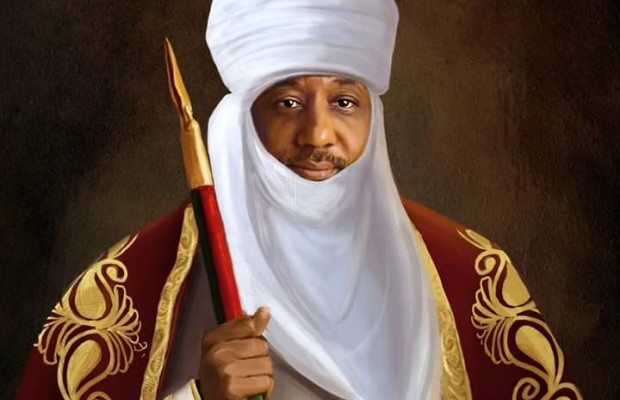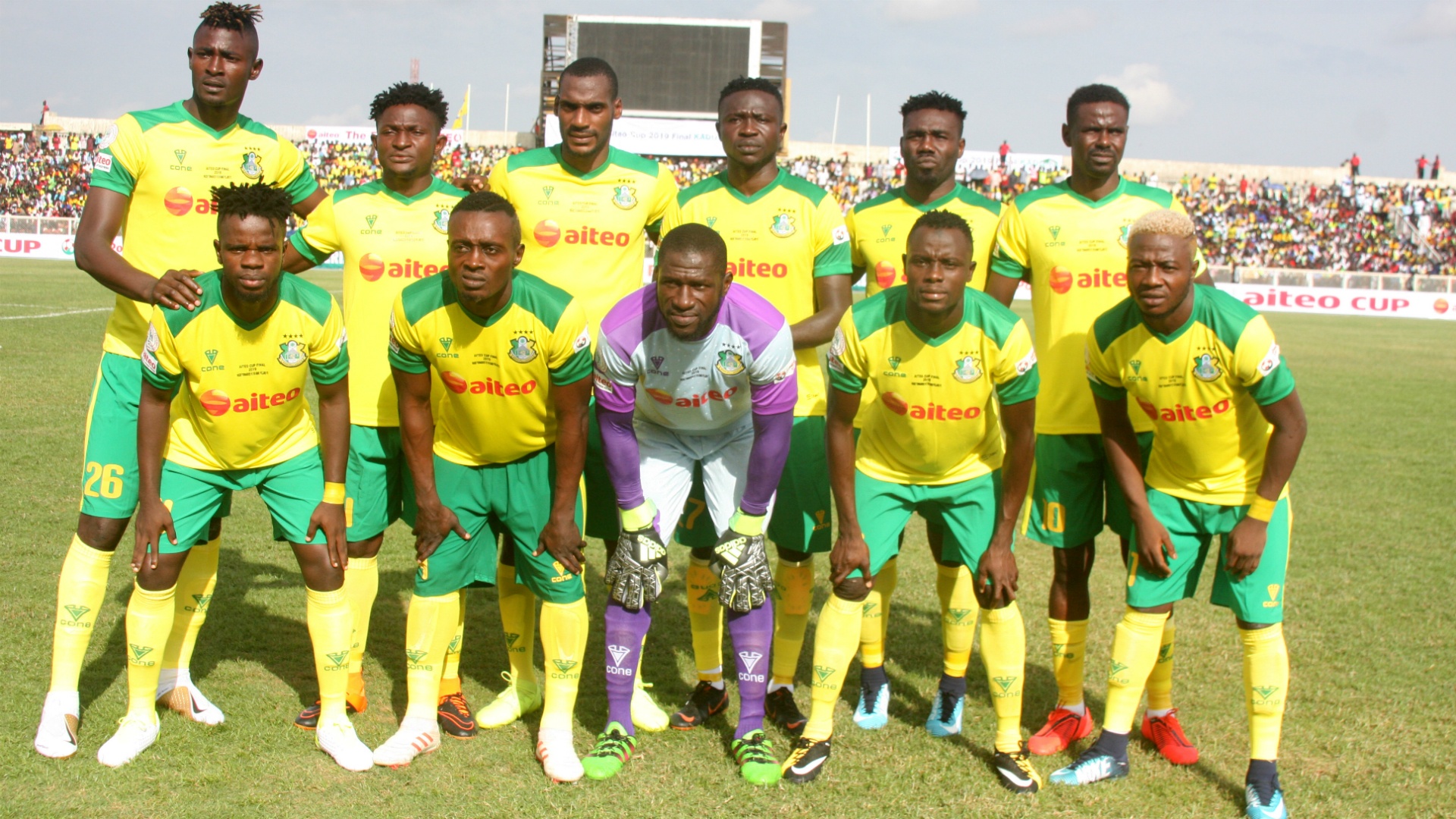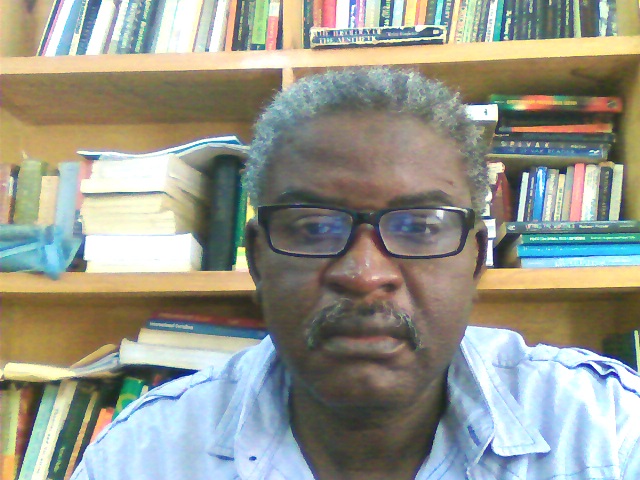Opinion
Emirs are not Kings!

Sunusi Umar Sadiq
The drama surrounding the restoration of a single Kano Emirate, which has hitherto been balkanised, and the reinstatement of Muhammadu Sanusi II as its emir is still unfolding. Yet, as always, there are many issues of interest that may need to be discussed even before the events fold up completely. One such issue is the question of chronology, that is whether the reinstated emir will now be referred to as the 14th, 16th or even 59th emir of Kano, the last mentioned counting from Bagauda, the first of the kings of the Kano Kingdom.
I have little or no problem with MSII being referred to as the 14th or even the 16th emir. It will just be an additional confusion upon the existing one. It is, nonetheless, a matter for historians to decide though the semantics is clear that reinstatement is a carry-over from the past, not a fresh beginning. In other words, when a person is reinstated to the position he once occupied but for whatever reason got removed therefrom, the interregnum is considered as an aberration. Moreover, it is the individual ruler that counted, not the period he occupied as it is the ruler that defines the era not vice-versa. This is perhaps encapsulated in the well-known Hausa saying of Sarki goma, zamani goma. And the extant sources we have, as far as I know, never assign a new chronology to a reinstated ruler obviously due to the contradiction that will cause when a headcount is taken.
There is a problem, however, to reckon the reinstated emir as the 59th King of Kano for the simple reason that the Kano Kingdom ceased to exist in 1807 when the last King of Kano, Muhammadu Alwali, was overthrown by the Fulani. A kingdom is independent and the king is sovereign. An emir, however, is subordinate to a higher authority to which he owes allegiance and must remain loyal for him to retain his post. He is no more than a Military Administrator under a military junta.

The Fulani turned Kano into an emirate, as they did to other Hausa States, thereby making it an appendage of Sokoto with the emir being in his post at the pleasure of the Supreme Ruler in Sokoto. Late Dr. Yusufu Bala Usman did well in bringing out these distinctions between emirates and kingdoms in his seminal doctoral research published as The Transformation of Katsina (1400 – 1883): The Emergence and Overthrow of the Sarauta System and the Establishment of Emirate.
Late Bala identified at least five distinct epochs in the case of Katsina, which is very much the same as the rest of the Hausa States. The epochs as identified are the period of the autonomous garuruwa and birane, with no overall head, only the occupational heads or guild chiefs with the Sarkin Noma as the primus inter pares. The second period saw the emergence of the Sarauta System. Then the third period, which he called the Jama’a Period, by which he meant the period immediately after the Fulani Uprising. The fourth period is the emirate period in which the authority is centred around the emir as a lieutenant of the Caliph in Sokoto. The fifth is the Native Authority System ushered in by the British Colonialists.
The impropriety of adding a Fulani emir to the list of the Hausa Kings becomes more manifest when we call to mind that the successor Hausa States of Gobir in Tsibiri, of Katsina in Maradi and of Zazzau in Zuba/Abuja (now Suleja) continue with their king-lists as it is not seat of a kingdom that defines that kingdom but the historicity and historical consciousness of the people involved. Duk inda Shehu ya ke nan ne Borno.
If we take Zazzau Suleja as an example, the current king is the 68th on the list, a list in which all the Fulani Emirs of Zazzau from Mallam Musa to Amb. Ahmad Bamalli cannot justifiably be placed. The Fulani are therefore free to make up their own “emirlist” so as to ensure historical coherence.
The problem with Kano is that unlike its sister states or kingdoms, the overthrown Hausa ma su sarauta did not establish a successor state anywhere. Why that happened is borne out by a number of factors which will be a topic for another day. Nonetheless, the sanctity of history has to safeguarded and respected. The Sarakunan Hausa were absolute monarchs. They did not have to curry the favour of some other ruler for them to remain on the throne or to secure the position for their offspring in the event of their passing. Moreover, the Hausa Kings were the fountain of the law and justice. They did not need a court order to maintain them on the throne or ward off their contenders.
Sadiq writes from Kano. He is the President of the Hausa Historical Society. He can be reached via hausahistoricalsociety@gmail.com

Opinion
The need to restore the prestige of Kano Pillars FC

Isyaku Ibrahim
There is no doubt whenever you talk about Enyimba of Aba in Nigeria’s top flight who won the competition nine time, the next team that will come to your mind is Kano Pillars that lifted the trophy on four good occasions. But nowadays,it seems the Kano darling is losing its prestige, recognition and above all popularity in the local league.
This was as a result of lack of total commitment, determination, tenacity, patriotism,diligence and seriousness which the side was known for in the past.

To say the fact, the pyramid City lad was previously rated among the traditional teams in the top flight as they have established and tested players that would not disappoint their teeming fans no matter where they are playing.
It was based on this late Rashidi Yekini while watching the team at Adamasingba Stadium now Lekan Salami Stadium in Ibadan said if he was to play for a local team he would prefer to lace his boot for Kano Pillars ahead of others.
The reason he Said was simply due to excellent free flow football of the team but now it seems that has gone for bad.
When the club was established as early as 1990 among the objectives behind was to boost the name of the state through football and beside that win trophies with a view to competing favourably with others.
While those behind the idea should be commended to a large extent for their foresight in that respect in view of how the team is now a household name in the round leather game countrywide but there is the need for a collaborative effort with a view to normalising things in the ancient city side as the club has now stepped down from its aforementioned aims and objectives.
It is painful that the team’s main priority nowadays was not to lift the league as the case was previously but to survive relegation which was baseless,laughable and nothing to write home about considering their past experience particularly when they were based at Sabongari Stadium.
Definitely,this season is almost over as Remo Stars are as good as being crowned the winners of the event
The best option for Sai Masu Gida is to start early preparation for the upcoming season through putting their house in order aimed at restoring their winning culture as the teeming fans are tired of flimsy excuses on the reason behind their lack lustre performance year in year out.
Honestly, what they are basically hoping for is to see the club matches theory with practice through grabbing the trophy or at least earning one of the three continental tickets in the country.
optimistically this is achievable with the full support of Governor Abba Kabir Yusuf coupled with that of his laborious and submissive Deputy Comrade Aminu Abdulsalam, good management, superb technical crew and the support of ardent fans who are always with the side in either thick or thin.
Ibrahim is a Director Public Enlightenment at Kano State Ministry of Special Duties.

Opinion
In defence of Prof Abdalla Uba Adamu’s beautiful quip on Kano – IBK

Prof. Ibrahim Bello-Kano (IBK)
Double Professor Uba Abdallah Adamu has angered many non-Kano people resident in Kano by his famous, widely circulated quip, an aphoristic description of Kano in which says the anyone tired of (living in) Kano is tired of life. Prof Adamu’s appraisal of Kano is based on a sound premise and a powerful emotional logic. Prof. Adamu’s comment has a powerful pedigree. On the arguments of the highly acclaimed French sociologist and space theorist, Henri Lefebre in “The Production of Space” (1974), it can be shown that Kano, especially the city and the metropolitan area, has three characteristics, typical of the greatest cities in the world since Antiquity:
1. It is a conceived space (an urban area, complete with a series of interlacing and interloping and interlocking urban designs since the 9th century). Kano was already a city and an urban space well before 1903. It’s one of the oldest urban areas in the Sudan.

2. It is a lived space, complete with the everyday experiences of its inhabitants and their emotional identification with it. Hence the many “quarters of the city”— from Alkantara, Alfindiki, Ayagi, to Mubi and Gwangwazo and beyond those.
3. Kano is also a practiced/practised space, with its inhabitants, visitors, and emigré population working to “practice up” the city in their daily lived experiences and within its urban and emotional spaces. That’s the truth of Prof. Abdallah Uba Adamu’s hyperbolic reference to Kano as a barometer of happiness or depression.
Prof Adamu is also correct in that most immigrants to the city never leave it, even if their last name may indicate other towns or cities. Already, Kano is one of the most truly cosmopolitan cities in Nigeria, surpassed only by New York, London, and Abidjan. In 1958, almost a decade before Lefebre’s book, the philosopher of science and urban studies, Gaston Bachelard published “The Poetics of Space” in which he argues that to live, or to choose to live, in a place, say the Kano metropolis, is already to enact an emotional act, and an existential event, in and for which Kano is already a resonant space of intimacy, or an intimate place of lived subjectivity. This is the case because one cannot live in Kano, even for a brief period, without (seeking to) creating a home, a nest, and an intimate space of “Kano beingness” or a Kano-based “being- in-the world”. That’s why Kano evokes and resonates with a strong emotional identification with it. When I was about 8 years old, I was told, on visiting the Dala Hill, that God had planned to create a holy city in Kano, but a dog urinated on the hallowed ground, and that’s how the divine plan was moved elsewhere. Of course, that story is clearly apocryphal, yet it shows how the Kano people are intensely proud of their places and spaces. So, Prof. Abdullah Uba Adamu’s hyperbolic and surreal description of Kano is essentially correct and pleasingly poignant. Many emigré groups are unhappy with his remarks, but if you live in a place, earn a living in it, or draw opportunities of all kinds from it, then you have got to love Kano, the most romantic of cities, a city full of dreams, aspirations, emotional highs and lows, and learn to identify with its fortunes. Kano, the city of gold and piety, recalcitrance and hope, modern politics and ideological contestations; the city of majestic royalty; the city of women and cars, as Shata once described it. Kano… the great Entreport. Kano, your name will endure through the ages. Cheers.
Ibrahim Bello-Kano (IBK) is a Professor of English at Bayero University, Kano.

Opinion
Kano: My City, My State

By Huzaifa Dokaji
Kano is not a place you reduce to a headline or dismiss with a stereotype. It is a city with too many layers for that- too much memory, too many voices. This is the Kano of Muhammadu Rumfa, the ruler who gave it form and vision, and of Ibrahim Dabo, the scholar-king. The Kano of Kundila and Dangote, where wealth meets ingenuity.

It is the Kano the British once described as the ‘London of Africa,’ the Tripolitans praised as ‘a city like a thousand others’, each one magnificent—and its own people, knowing its complex social and ideological chemistry, named tumbin giwa, the intestine of an elephant: vast, winding, and full of hidden depths.
Kano has always carried many lives at once. It is the home of Shehu Tijjani Na Yan Mota and the sanctuary of Abdullahi dan Fodio when he felt the revolution had been betrayed. It is Madinar Mamman Shata and the home of Aminu Ala, the author of the philosophical Shahara and masterfully composed Bara a Kufai. This is the same Kano that made Dauda Kahutu Rara, the master of invective lyrics, and Rabiu Usman Baba, the Jagaban of Sha’irai.
Here, contradictions do not cancel each other, they coexist. It is the city of yan hakika and yan shari’a, of Izala and Tariqa, of Shaykh Rijiyar Lemo and of Shaykh Turi. It is the Kano where people will argue passionately about doctrine, then share tea afterward. Where silence and speech, mysticism and reform, are all part of the same long interesting yet boring conversation.
This is the Kano of the diplomatic Emir Ado Bayero and combatant Muhammad Sanusi II. Of Rabiu Kwankwaso, the red-cap-wearing jagora, and of the agreeable Ibrahim Shekarau. It is that same Kano of the incorruptible Malam Aminu Kano and Dollar-stuffing Ganduje. The cosmopolitan city of Sabo Wakilin Tauri and of the saintly Malam Ibrahim Natsugune.
If not Kano, then what other city could birth Barau Kwallon Shege, the bard of the profane, and welcome Shaykh Ibrahim Nyass, the towering saint of the mystics? Where else but Kano would you find Shaykh Nasiru Kabara- scholar and Sufi master- sharing the same cityscape with Rashida dan Daudu and all the remembered and forgotten Magajiyoyin Karuwai? This is the Kano of yan jagaliya and attajirai, of the sacred and the profane, the pulpit and the street. The Salga and of Sanya Olu and Ibedi streets. Kano has never pretended to be a city of one truth, its greatness lies in the multitude it carries.
So when people speak carelessly about Kano, they miss the point. Kano is not a relic. It is alive. It debates itself. It holds its tensions with pride. And like Adamu Adamu said, “the story of this enigmatic city is simple and straight backward – and , in the end one can only say Kano is Kano because Kano is Kano – and that’s all; for; it is its own reason for being.”
You don’t explain Kano. You respect it.
This was first published on Huzaifa Dokaji’s Facebook account.













